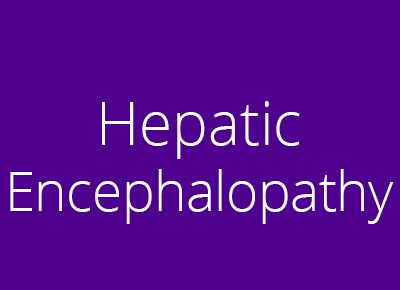What is it?
Hepatic Encephalopathy is a condition that causes temporary worsening of brain function in people with advanced liver disease. When your liver is damaged it can no longer remove toxic substances from your blood. These toxins build up and can travel through your body until they reach your brain, causing mental and physical symptoms.
What are the symptoms?
Mild confusion
Short attention span
Forgetfulness
Mood swings
Personality changes
Inappropriate behavior
Difficulty writing or doing other small hand movements
Slurred speech
How is it diagnosed?
History and Physical Examination
Laboratory tests: Ammonia is the best characterized neurotoxin that precipitates hepatic encephalopathy
Radiologic imaging is primarily used to exclude other causes of mental status changes .
How is it treated?
Once any precipitating factors have been addressed, treatment is aimed at lowering the level of ammonia and other toxins in your blood. Since these toxins originally arise in your gastrointestinal or GI system, therapies are aimed at your gut to eliminate or reduce the production of toxins. The two types of medications used to do this are lactulose, a man-made sugar, and antibiotics.
Are there any complications?
As cirrhosis progresses, symptoms and complications can appear that make it apparent that the liver is not doing well
Fluid build up and painful swelling of the legsand abdomen (ascites)
Bruising and bleeding easily
Enlarged veins in the lower esophagus (esophageal varices) and stomach (gastropathy)
Enlarged spleen
Gallstones
Liver cancer
